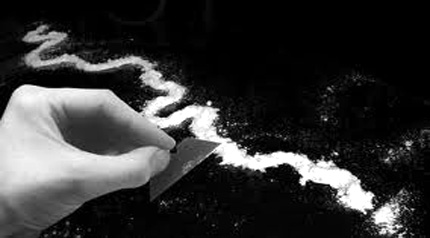10 Signs of Cocaine Addiction
As with any addiction process, the “high” experienced from using cocaine plays a pivotal role in driving a person’s behaviors to the level of addiction. Even so, if the “high” were all that was involved, cocaine addictions would not operate as ruthlessly as they do.

The bigger the role cocaine has in your life, the likelier it becomes for you to develop an addiction.
Signs of cocaine addiction stem from these initial effects, which over time snowball into a compulsive drug-centered mindset. Once the mind and body start to crave the effects of the drug, signs of cocaine addiction appear in most every aspect of a person’s life. While this may envelope a broad spectrum of areas to consider, the 10 most common signs of cocaine addiction break down as follows:
- Unable to Stop Using – When the brain becomes dependent on cocaine’s effects, people have difficulty limiting their daily intake let alone reducing or eliminating the drug altogether. According to Bryn Mawr College, cocaine actually alters brain function to the point where the brain requires the drug in order to function normally.
- Needing Increasingly Larger Doses to Experience the Same “High” Effects – Cocaine effects produce a release of dopamine chemicals in the brain. The more often this process takes place, the less able the brain is to produce dopamine on its own. In effect, the brain’s increasing tolerance levels demands more of the drug in order to create the same effects.
- Using Cocaine to Ward off Withdrawal Symptoms – one of the key symptoms, this sign of cocaine addiction accounts for why it’s so difficult for addicts to stop using.
- An Obsession with Obtaining and Using Cocaine – As cocaine use becomes more frequent, a person starts to believe he or she needs the drug in order to make it through the day. This sign of cocaine addiction means a full-blown addiction is at work.
- Giving Up Other Activities – As cocaine dependency increases, people start to place greater priority on getting and using drugs. Once enjoyable activities get passed over for drug-related activities.
- Financial Problems – When someone starts selling off personal possessions or even stealing from family and friends to support a cocaine habit, this sign of cocaine addiction marks the beginning of the slow decline to rock bottom.
- Decrease in Sex Drive – Cocaine’s effects on the brain not only affect a person’s interests, but also impair biological functions, including sex drive. In effect, normal bodily responses continue to deteriorate with ongoing use.
- Relationship Problems – A cocaine-addicted partner will do anything and everything to protect and sustain a cocaine habit, according to Columbia University. Deceitfulness and even infidelity (for the sake of obtaining more drugs) is par for the course. This sign of cocaine addiction becomes especially apparent when one partner uses and one partner does not.
- Declining Health – As long-term cocaine use alters brain structures and functions, body functions start to decline. Insomnia, weight loss, irritability, restlessness and anxiety problems develop and become increasingly worse with ongoing use.
- Needing to Use Cocaine to Cope with Social Situations – Social situations may include at work, when interacting with friends or even when dealing with family members. This sign of cocaine addiction develops when a person starts believe he or she cannot behave or function normally without the drug’s effects.